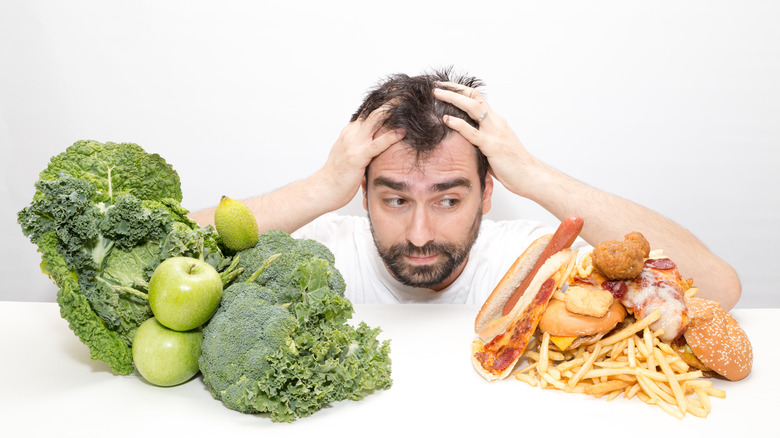What You Never Knew About 'Nutritional Wisdom'
Have you ever found yourself hungry for a specific food — not an ice cream craving — but your mouth watering at the thought of radishes or liver? Could this indicate some lack of vitamins or minerals? The commonly held belief is that ancient humans' eating habits are meant to consume calorically-dense foods and obtain nutritional needs naturally. It has been shown that animals instinctively self-medicate with food (per The National Library of Medicine); to understand if people have similar propensities, researchers at the University of Bristol conducted a study to examine whether humans have some physical intelligence that directs us to eat what our body needs. Indeed, people are inclined to choose specific combinations of food over others due to micronutrient preferences.
One Arizona State University professor shared another potential theory for nutritional intelligence – gut microbes. Remarkably, microbes can stimulate our vagus nerve, causing the release of serotonin and dopamine, and affecting the taste receptors that drive us to eat specific foods (via BBC). What else might influence our food choices?
The wisdom of cravings
Many of us have disappointingly noticed blandness in foods like tomatoes and chicken. In The Dorito Effect, Mark Schatzker proposes that, in fact, our agricultural system has caused the loss of flavor in much of our food by bioengineering food products and over-processing foods. According to Schatzker, our bodies are designed to respond to flavor, and by manipulating it, we've separated ourselves from our natural abilities to discern exactly what our bodies need. If left to our own devices, we'd be just fine.
Schatzker presents evidence that packaged foods create "a divergence between the nutritional content the brain senses as it consumes food and the actual nutrients that arrive in the stomach" (per The Wall Street Journal). It seems that not only is it possible the body has nutritional intelligence, but that we may have stopped paying attention, while impacting our natural abilities to know what is best.

